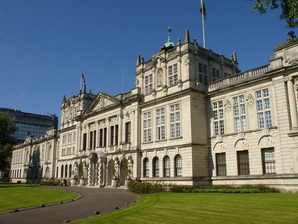
Currently there are over 30 such campaigns taking place at universities across the country. And with universities looking to fund the new technologies necessary to pursue cutting edge research, the pricetags on these campaigns are rising quickly.
Between 2006 and 2011, Stanford ran a capital campaign, entitled The Stanford Challenge, which raised $6.23 billion—the most of any university campaign ever, according to school officials. Now others continue the legacy of “power fundraising.” Since summer 2013, both Harvard and the University of Michigan have announced plans for upcoming uber fundraising campaigns.
The University of Michigan, who is launching a campaign in November 2013 (with an unannounced goal to date) has had three capital campaigns since 1981. The capital campaign of the last decade, the Michigan Difference, ran from 2004 to 2008 and raised $3.2 billion for the University. Funds were used in large part to renovate or add to the University’s physical footprint through the construction of 22 new campus buildings, including the Ross School of Business, the Ford School of Public Policy’s Weill Hall, C.S. Mott Children’s Hospital and Von Voigtlander Women’s Hospital. The Michigan Difference also supported the creation of 185 new professorships and nearly 2,000 new scholarships.
Harvard University launched a $6.5 billion capital campaign in September 2013 that, if successful, would be the largest fundraising effort in the history of higher education. The school said the campaign had broad goals spanning all its schools and would fund research into neuroscience, stem cell science and low-cost energy for the developing world. The campaign would target major renovations of the university's undergraduate housing and increase its study of new learning and teaching strategies. It also aims to expand the school's global presence, including through an ongoing project to develop a center in Shanghai for conferences and research.
Harvard President Drew Gilpin Faust said the campaign will help the school meet the world's increasingly complex and pressing needs." We will meet these challenges, and in doing so, we will reaffirm what makes Harvard — and universities in general — such essential and irreplaceable contributors to the pursuit of knowledge and the welfare of the world," Faust said in a press release.
As organizational needs grow and the wealth of international alumni and regional donors increases…what is next I ask?


 RSS Feed
RSS Feed
